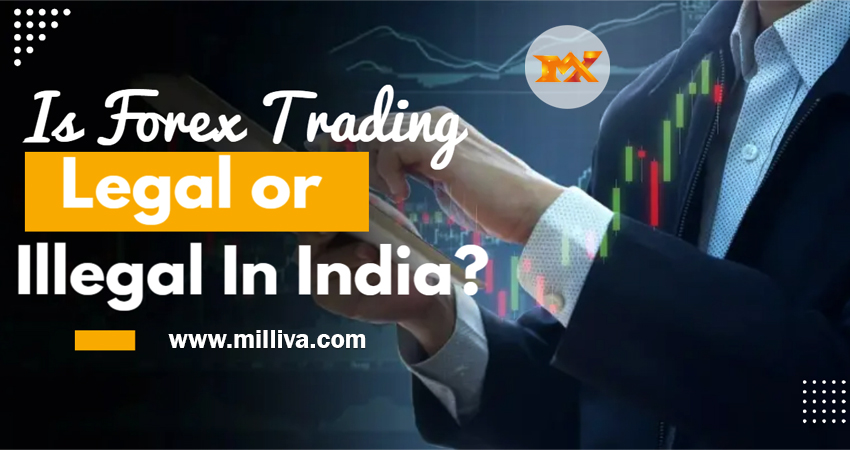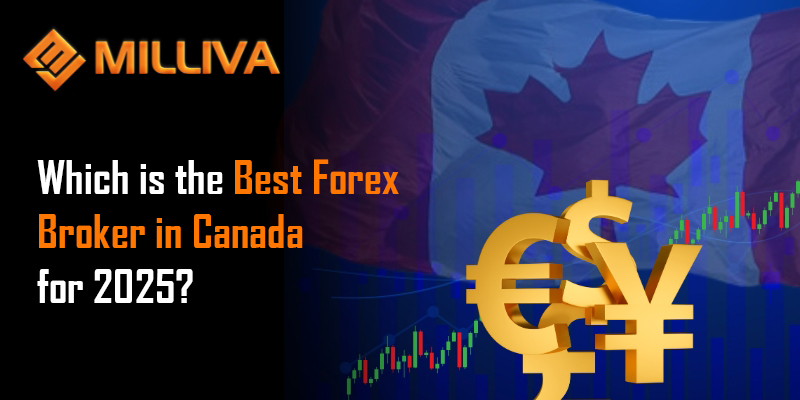Is Forex Trading Legal or Illegal In India?

![]()
Looking for information on what currency trading in India entails? Or do you have questions regarding how to lawfully trade currencies in India? In fact, the greatest decentralized global market for trading currencies is the foreign exchange market. Most active currency exchange market in world is India. However, the majority of people are still unsure about the legality of forex trading in India.
Forex (FX) commonly known foreign exchange or currency trading a decentralized global market. Where all of the different currencies of various economies bought and sold. The largest and most liquid market in the world is the Forex market.
Global Forex Market
The global forex market is nowhere near this, with an average daily trading volume of $5 trillion. Currency trading is the act of purchasing and selling, and if you’ve ever been abroad, you’ve already engaged in some currency trading.
If you converted rupees (INC) into euros before travelling to France, number of euros you received for your rupees depended on Current FX exchange. Which was dependent on supply and demand.
Additionally, currency rate is so volatile and liquid comprehending it demands.Both financial talents and thorough knowledge of the market-based trading system.
When one currency bought & sold for another as part of same transaction and categorically at same time. This known as forex trading. Two currencies involved in transaction known as currency pair. Each one is represented by group of 3letters, first 2letters denoting country’s name and third letter denoting currency name. Example as in American Dollar: USD, Australian Dollar: AUD, Japanese Yen: JPY, Eastern Caribbean Dollar: ECD, Indian Rupee: INR, etc.
Foreign Exchange Market
Foreign exchange market is decentralized, extremely liquid, and international, and its players include central banks, commercial banks, brokers, and others.
The main banks’ foreign exchange offices are connected on a 24-hour basis globally. London Amsterdam, Frankfurt, Milan, Paris, New York, Toronto, Bahrain, Tokyo, Hong Kong, and Singapore are the primary commercial centers for foreign currency.
According to government laws, central banks RBI in India monitor market movements and are required to interfere if necessary.
We have Exchange-Traded Currency Derivatives for What Reason?
A financial contract that is listed and traded on a regulated exchange is known as an exchange-traded derivative. In a nutshell, these are the derivatives that are exchanged in a controlled environment. Currency derivatives that are traded on exchanges get their value from underlying asset that is listed on a trading exchange.
It is a safer medium because it is protected against any default through a clearinghouse. ETDs are distinct from over-the-counter (OTC) derivatives. Due to their listing on trading exchange in terms of highly standardized nature, increased liquidity & capacity for secondary market trading.
It is important to keep in mind that ETDs comprise both futures and options contracts. It means one can utilize ETD to swap one currency for another at later time at price determined on the day of purchase. Such derivative contracts are utilized in India as a form of insurance against higher-value currencies.

Is Forex Trading is Legal in India?
Forex trading is considered lawful in India. There are few considerations in for an Indian citizen to engage in forex trading inside Indian Territory using any electronic or online forex trading platform. This is in accordance with SEBI guidelines and RBI regulations designed to reduce the risk involved. The RBI barred currency trading using electronic or online trading portals in a circular that was published in 2013.
However, when done through specific foreign trading platforms, with INR as the foundation currency, forex trading is considered lawful (Indian Rupees). Indian Government has restricted trading for Indian citizens to just currency pairs that are benchmarked against the INR, to put it simply (Indian Rupee).
As an Indian resident, your trades are totally legal as long as you are trading through specific Indian brokerage. It gives you access to Indian exchanges like NSE, BSE, and MCX-SX and also gives you access to currency derivatives. Before, only the currencies EURINR, GBPINR, JPYINR, and USDINR could be traded.
The Reserve Bank of India also permitted exchanges to provide cross-currency futures contracts and exchange-traded currency options. It will be in 3additional currency pairs, namely EUR-USD, GBP-USD, and USD-JPY, as of December 10, 2015, onward.
Aappropriate time to point that engaging in illicit forex trading in India is punishable by imprisonment or a fine under the Foreign Exchange Management Act (FEMA), 1999, or FEMA Act. However, it should be noted that NRIs are not prohibited from dealing with foreign exchange in India.
Indian Forex Trading Techniques
It is simpler to lose money than to make it given its liquidity in terms of the daily trading volume. Here are some tactics commonly used to advance the cause:
Price Action Strategy : The most popular trading method for forex is the price action strategy. It is normally helpful in all kinds of market conditions and fully dependent on the bulls or bears of the price action in currency trading.
Trend Trading – Traders must determine direction of currency price movement on the basis of which they must choose their entry point.
Moving average, stochastic, relative strength indicators, and other online tools are also accessible to help traders with their analysis.
Trading against present trend is done in this technique with sole intention of obtaining minor gains and it depends on the assumption that the trend will change.
Range Trading – Trade is made in specific range of currency prices and trader must determine most advantageous price conditions. In range trading, the price levels are typically influenced by the demand and supply for the currencies.
Breakout Trading : Trader joins the market when it is breaking out of a prior trading range, or performing a breakout.
Position trading entails evaluating the charts at the end of the day and is primarily employed by experienced, professional traders. To perfect this method, one must have a firm understanding of the market’s fundamentals.
Carry Trade : Interest rate difference between the two nations whose currencies are being traded is main focus of the strategy. If done correctly, this technique which entails selling currency with low-interest rate and buying the one with a higher interest rate, is seen to be rather effective.
Futures market is open to every Indian who resides on Indian Territory. The currency futures market, however, is closed to Non-Resident Indians (NRIs) and Foreign Institutional Investors (FIIs).

Visit us on: www.milliva.com





